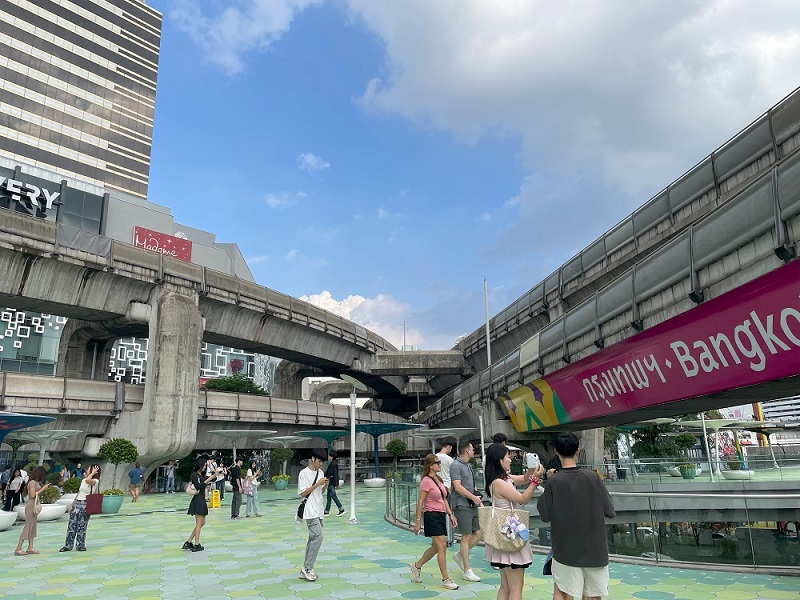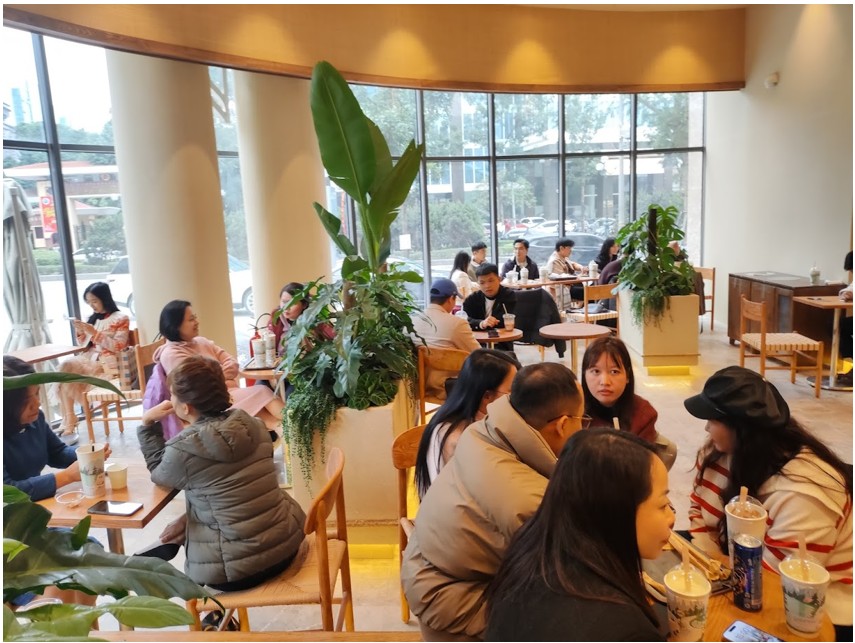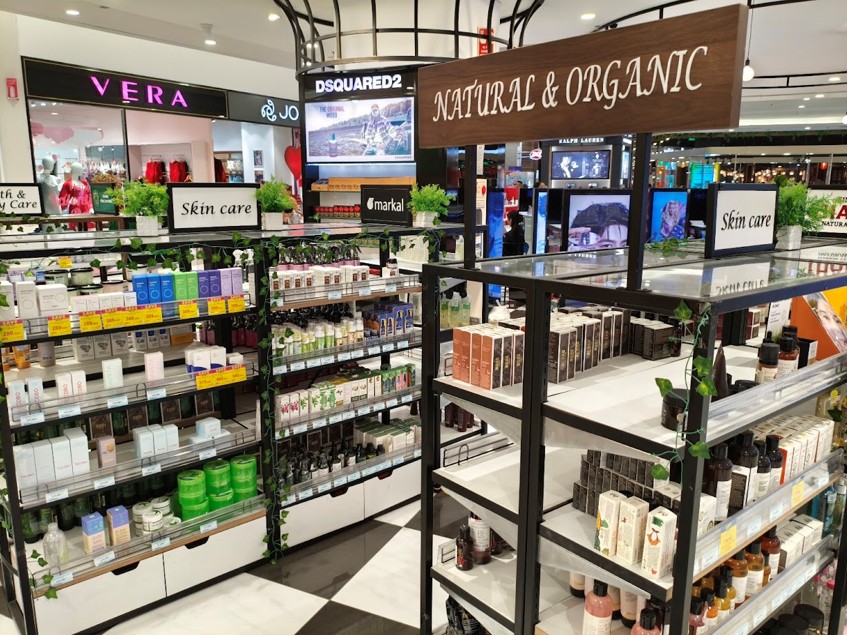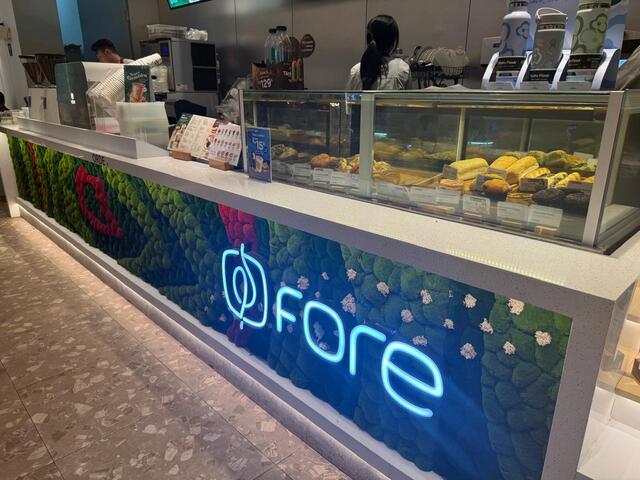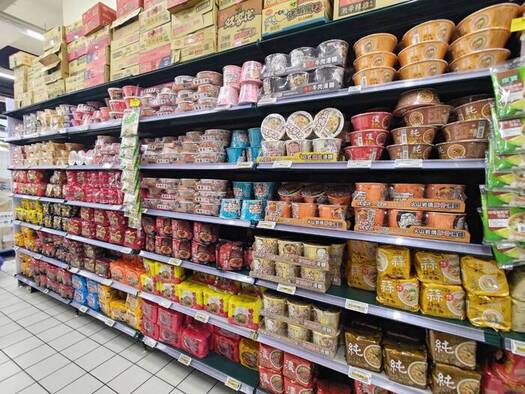Generation Z in Asian Countries] Indonesia: Japanese Sweets & Halal Cosmetics Popular among Generation Z
- Release date: May 02, 2025
- 5367 Views
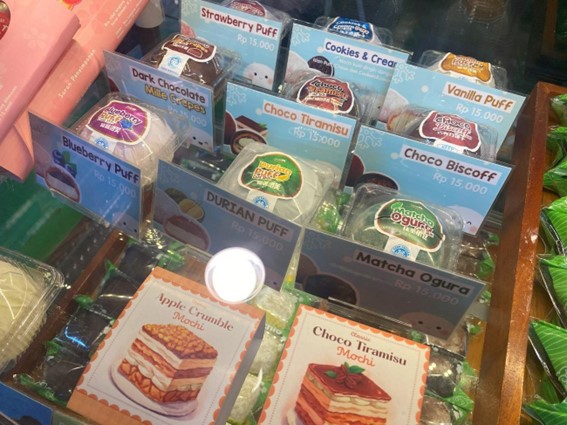
Wagashi and MOCHI DAIFUKU are popular due to the popularity of travel to Japan
Due in part to the depreciation of the yen, the number of tourists visiting Japan from Indonesia has been increasing. In particular, recently, interest in travel to Japan has been growing, especially among Generation Z, who are working and are in their mid to late 20s. For Indonesians, Japan is a country where tourist visas are relatively easy to obtain, and an increasing number of Indonesians are visiting with friends or on family trips with small children. The results of a survey conducted by Intage's sei-katsu-sha database, Global Viewer, also show that Japan is the most popular country/region for travel within the next 12 months.
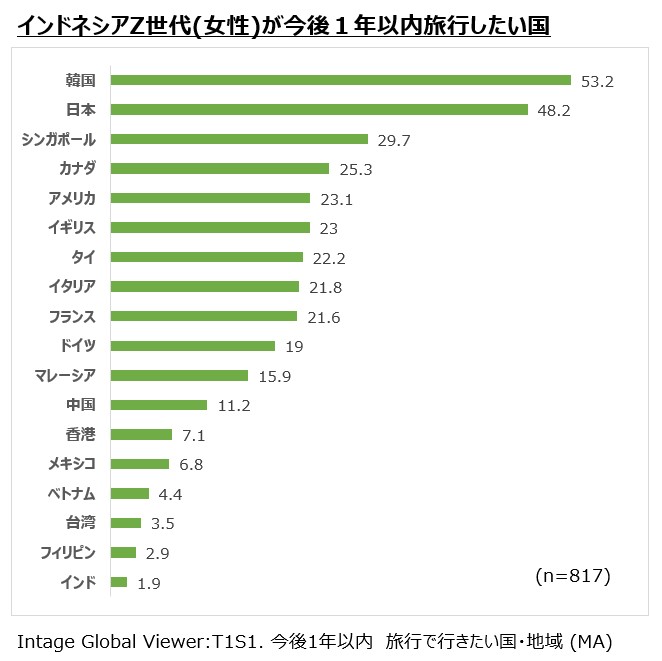
*About Global Viewer
This service provides reports tailored to your issues using questionnaire data on various actual conditions and attitudes of sei-katsu-sha in 11 countries (Asia and US) stocked by INTAGE.
The service covers 400 items, including actual behavioral conditions and awareness, values, and information contact related to various product and service categories.
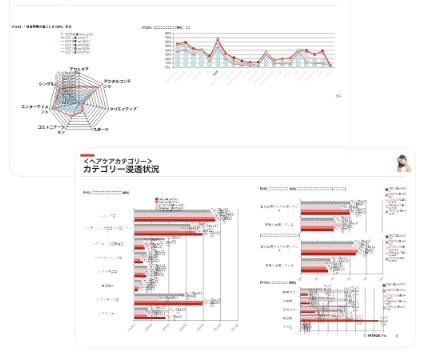
According to Global Viewer, Indonesian Generation Z has a positive view of the current economic situation and is optimistic about the economic outlook for the year ahead. In fact, GDP has been growing steadily since the Corona disaster, and salaries are rising at an average annual rate of 4-6%. In addition, airfare to Japan can be arranged for as low as approximately 60,000 yen round-trip with the help of promotions, creating an environment in which people can easily visit Japan without having to use LCCs.
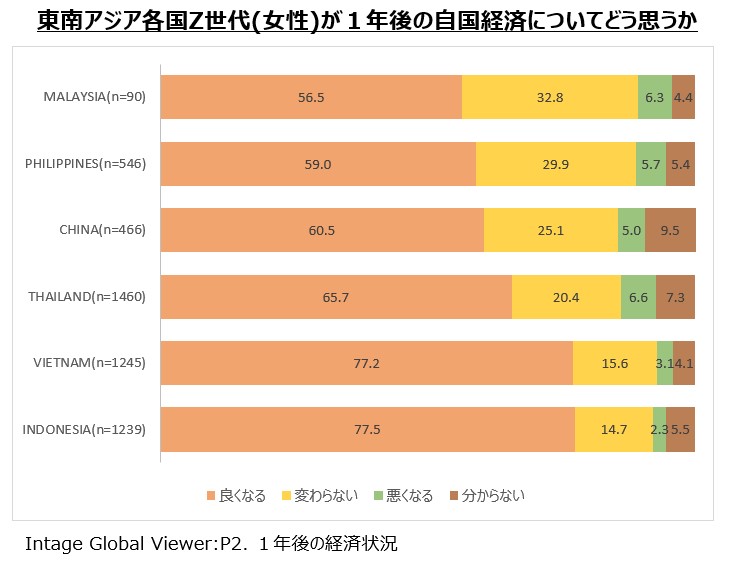
More and more Indonesians are using SNS to disseminate information about their trips to Japan, and not only information about traditional Japanese culture and tourist spots, but also Japanese food culture is now frequently featured. As a result, the perception that Japan is a place to enjoy food is spreading among Indonesian Generation Z.
Although there are many Japanese restaurants in Jakarta, Japanese sweets have not been very familiar to Indonesians in the past. However, recently the popularity of wagashi has been increasing among Generation Z. Global Viewer's results show that wagashi is the most popular food item among both men and women who would like to purchase in Japan. In particular, “MOCHI DAIFUKU” is attracting attention among wagashi.
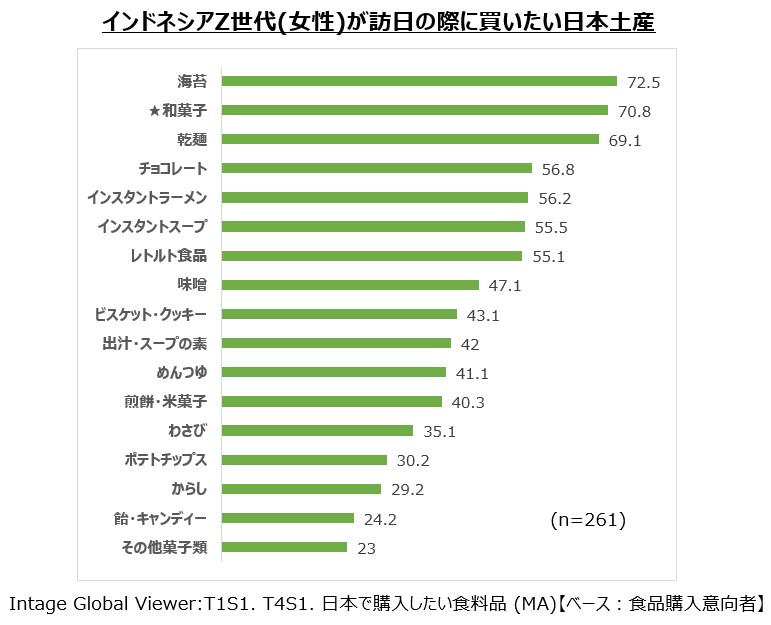
In Indonesia, there is a traditional confectionery originally called "kue mochis.
These include peanut red bean paste wrapped in a skin made of glutinous rice flour, and a soup-like dish made of mung beans and red glutinous rice boiled in sweet coconut milk. Against this background, it can be inferred that “wagashi/daifuku” was a relatively easy food for Indonesians to accept.
The current “MOCHI DAIFUKU” boom started out with online sales and later spread to specialty stores, convenience stores, and supermarkets, as well as station kiosks and food stalls. The initially popular strawberry daifuku, which was difficult and expensive to procure strawberries, has evolved into a variety of flavors using cream, fruit, chocolate, cheese, and other ingredients to better suit Indonesian tastes. The bright and colorful appearance of the product also contributed to its popularity, and the image of “MOCHI DAIFUKU = Japanese-style rice cake” is becoming a representative of the new sweets boom.
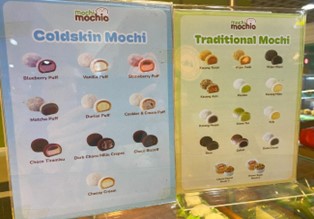
Mochi Mochio has opened numerous stores in malls in Jakarta.
Among them, the cream-based refrigerated type “vanilla” is particularly popular because it can be eaten like ice cream.
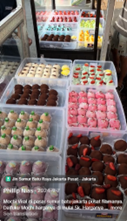
Its popularity has spilled over into food stalls. These open-air style stores have become so popular that people have to wait in line to get in. The reason for their popularity is that, in addition to a wide variety of flavors, they are reasonably priced, ranging from 5,000 rupiah (about 50 yen) to 15,000 rupiah (about 150 yen).
Interest in travel to Japan among Indonesian Gen Z is expected to increase further in the future, and Japanese food culture, including wagashi, is expected to become even more widespread. New trends, such as the “MOCHI DAIFUKU,” will continue to emerge and further establish the status of Japanese confectionery in Indonesia.
Halal Cosmetics in Indonesia - Influence of Korean Cosmetics Trend
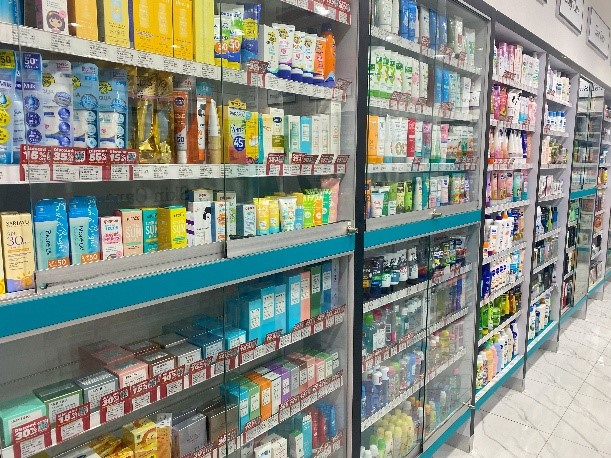
In Indonesia, from October 2024, it will be mandatory to label certain products, including cosmetics as well as food and beverages, as to whether they are Halal certified or not. Muslim men and women of Generation Z, who value the health of their skin and hair, are choosing Halal cosmetics with more reassuring natural ingredients and those produced domestically or approved by the government. Here are some typical examples.
According to Global Viewer, Indonesian Gen Z women are more concerned about beauty than health.
According to an online article in the newspaper Kompas on August 8, 2024, Generation Z spends an average of Rp. 150,000 per cosmetic purchase and Rp. 300,000 per month.
*Kompas.id「Tren Generasi Z dan Milenial Berbelanja Kosmetik」(Lazada Indonesia survey, Statista survey)
https://www.kompas.id/baca/ekonomi/2024/08/07/tren-generasi-z-dan-milenial-berbelanja-kosmetik
The results of the “Important Considerations When Purchasing Makeup Items” survey show that “Comfortable to use” received the highest percentage of responses among all countries for both base and point makeup cosmetics.
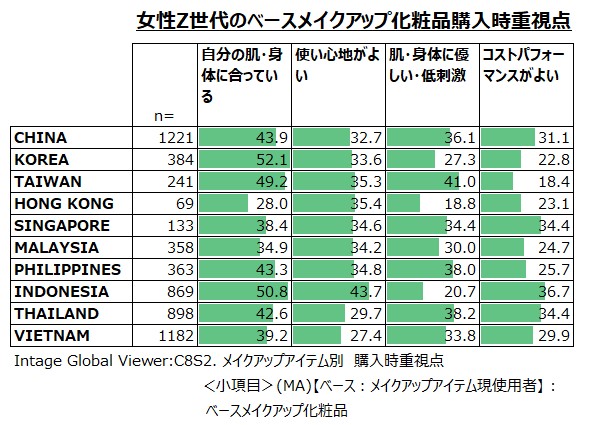
Indonesian consumers tend to place more importance on feel and comfort than on design or brand name when it comes to items that come in contact with their skin. They also place importance on the affordability and ease of purchase in stores and online.
On the other hand, it is interesting to note that the values indicating awareness of natural ingredients and high quality were relatively low. This may be due to the fact that Halal certification and natural ingredients are already widely accepted as a “matter of course” for cosmetics in Indonesia, and few respondents dared to place importance on them. Economic strata and regional differences may also have had an impact. While middle-income middle class and above have a strong focus on quality, low-income groups tend to prioritize price in their consumption and may not be as conscious of quality.
Wardah is the most well-known and reasonably priced representative halal cosmetics brand.
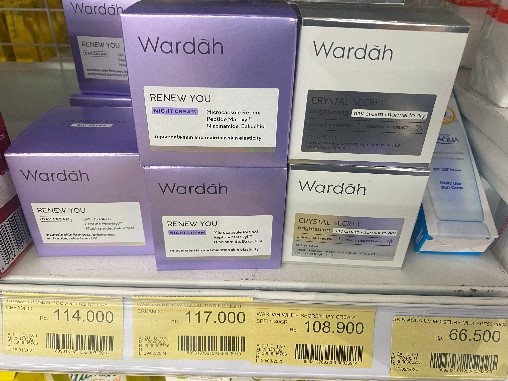
It became known as a halal cosmetics brand earlier than its competitors, and has gained wide support not only among Generation Z but also among the older generation because of its affordable price and wide availability in drugstores and convenience stores.
Another brand of halal cosmetics that is particularly popular among Generation Z is Emina Cosmetics. With its cute pastel packaging design and affordable price range, Emina Cosmetics is strongly supported by young women, especially those in their teens and early twenties.
Acne control lines are particularly popular among Generation Z. In Indonesia, many people in their 30s suffer from acne due to dietary habits and air pollution. In Indonesia, many Indonesians suffer from acne until their thirties due to factors such as diet and air pollution, and Emina has developed products that address local skin concerns, including “Ms. Pimple Acne Solution Spot Gel” and "Bright Stuff for Acne Pimple Acne Solution Spot Gel“ and ”Bright Stuff for Acne and Prone Skin" have received high praise on social networking sites.
While halal cosmetics produced domestically in Indonesia are attracting attention, the popularity of Korean cosmetics remains strong. Korean companies were among the first in the Indonesian market to obtain Halal certification and are leading this boom. In particular, their affordable price range, wide variety of products, promotion by K-POP idols, and sophisticated package designs are cited as reasons for their popularity among Generation Z. Korea has strict pharmaceutical laws and a high level of trust in safety; Nacific's Halal & Vegan Friendly certification has attracted particular attention.
Others, such as Innisfree, are easily available through a wide range of sales channels, including MINISO, drugstores, and their own stores, which carry low-priced products. Prices are also lower than those of Western or Japanese cosmetics, with many products available at about half the price.
In addition, the beauty market for Generation Z males is expanding in Indonesia under the influence of K-POP and Korean cosmetics. Muslim men, who previously showed little interest in beauty, have recently become interested in skin care and makeup.
While advertising using Korean male idols has spread beauty awareness, some resistance exists due to differences in body shape and appearance. However, this boom has triggered homegrown brands to aggressively develop products for men. The homegrown brands use Indonesian male models and feature designs and colors that emphasize “masculinity” and "adult appeal.
His ERHA is a men's cosmetics brand from Indonesia that is attracting attention.
His ERHA is the men's line of the ERHA skincare brand, which was developed based on the findings of dermatologists, and offers products that combine natural ingredients with a scientific approach.
The Indonesian cosmetics market is expected to see even more high-quality products from homegrown brands in the future. Product development will continue to incorporate foreign beauty technologies while addressing the unique skin concerns of Indonesians. As in Japan and South Korea, product lines by generation and purpose are expected to be enhanced, and men's lines are expected to flourish.
Related Article: Understanding Overseas Gen Z Characteristics: Country-Specific Trends in Values and Lifestyle (Singapore, Hong Kong, South Korea, Taiwan, China, Malaysia, Thailand, Indonesia, Vietnam, Philippines)
Using a large consumer database, we identify characteristics and trends among Gen Z in each country and present them in a summary article.
You can also view information on Gen Z in other countries.
Countries Covered: Singapore, Hong Kong, South Korea, Taiwan, China, Malaysia, Thailand, Indonesia, Vietnam, Philippines
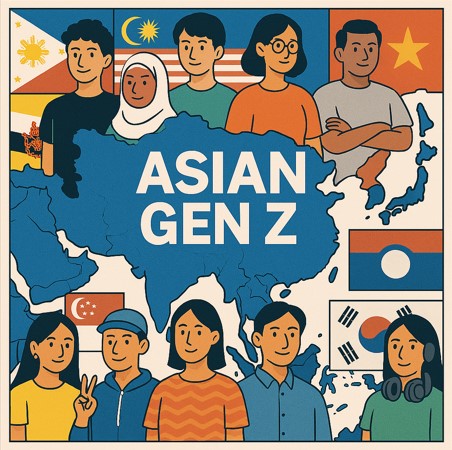
-
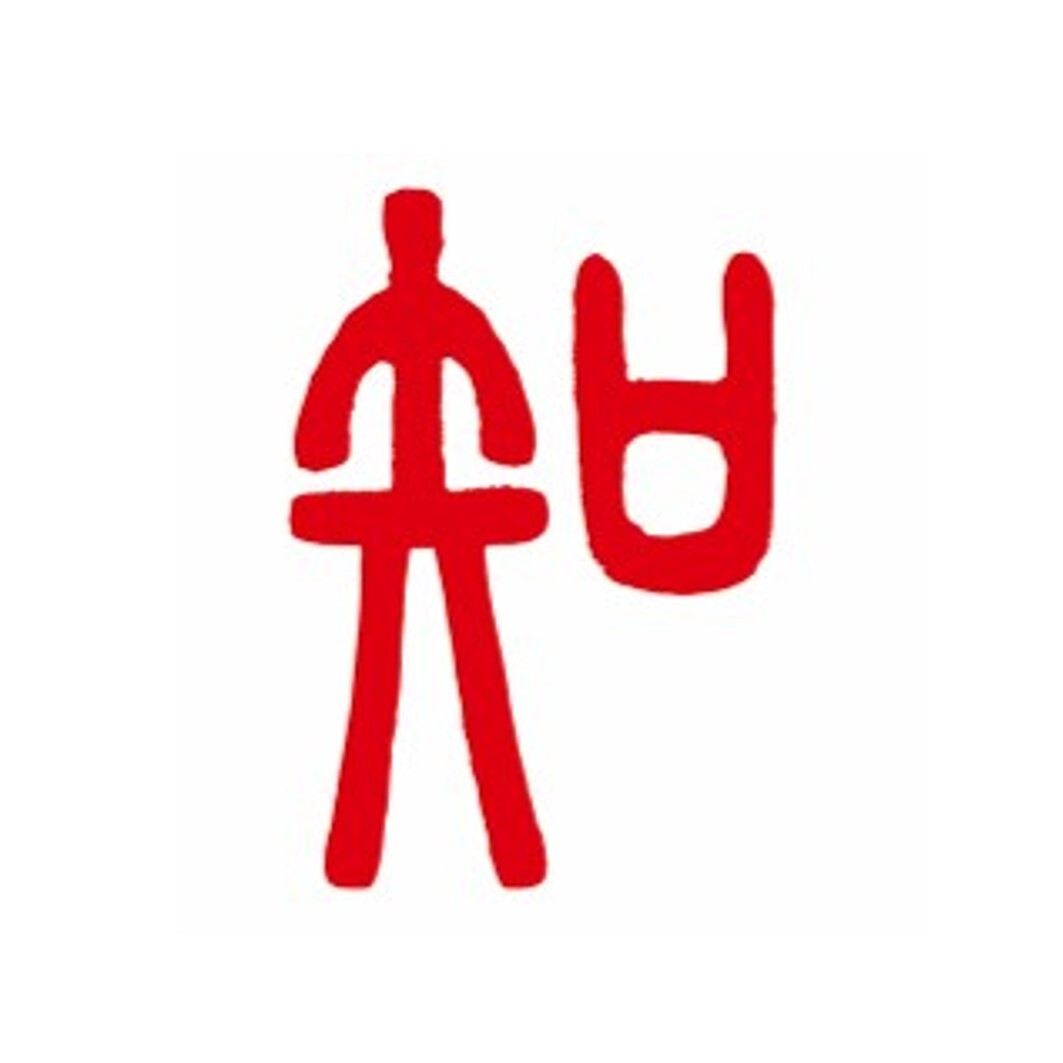
Author profile
TNC Lifestyle Researcher
She has lived in Indonesia for 20 years. Living with her Indonesian husband and two children, she provides information on food, beauty, and daily life in Jakarta.
I basically procure my cosmetics locally. I am always on the lookout for “good, inexpensive products” that are gentle on the skin and reasonably priced. -

Editor profile
Chew Fong-Tat
Malaysian researcher who has lived in Japan for 14 years and has handled many surveys on ASEAN countries.
 Global Market Surfer
Global Market Surfer CLP
CLP
